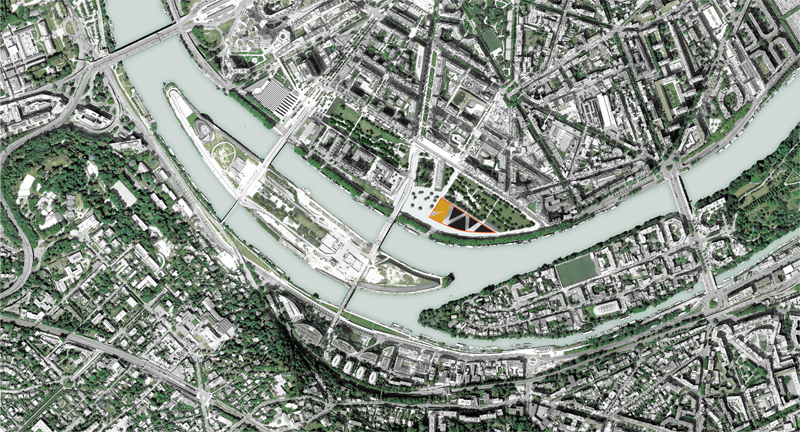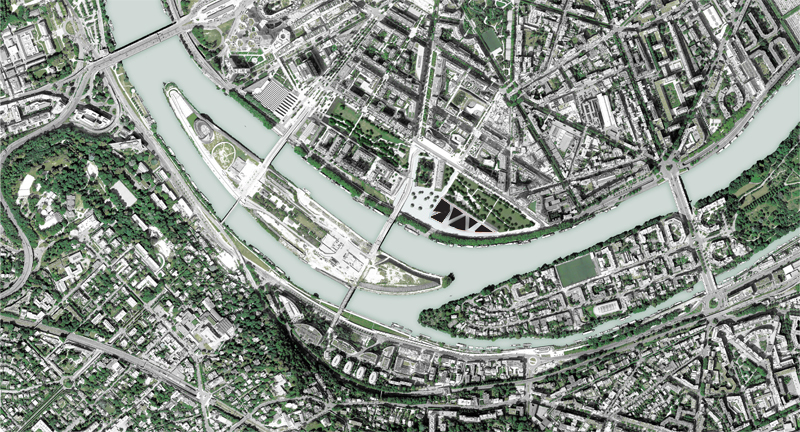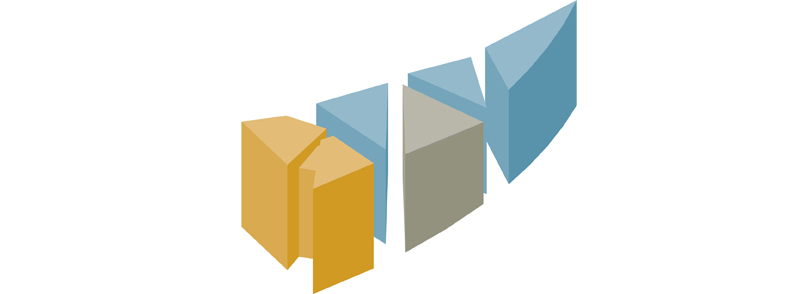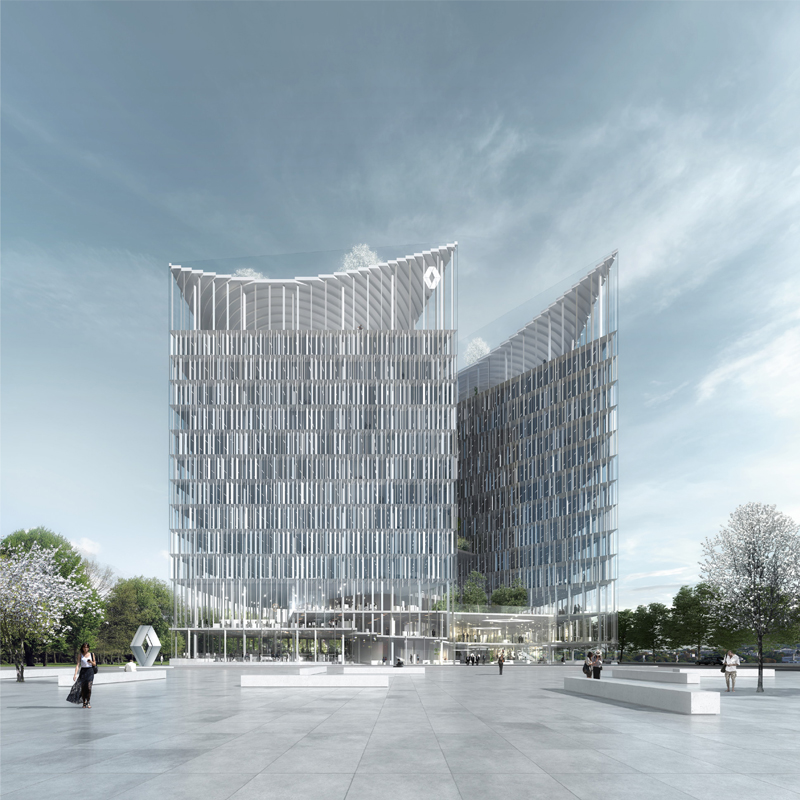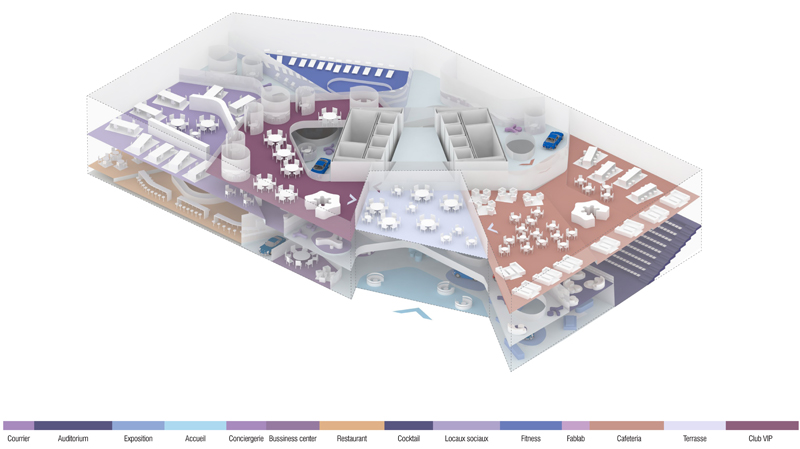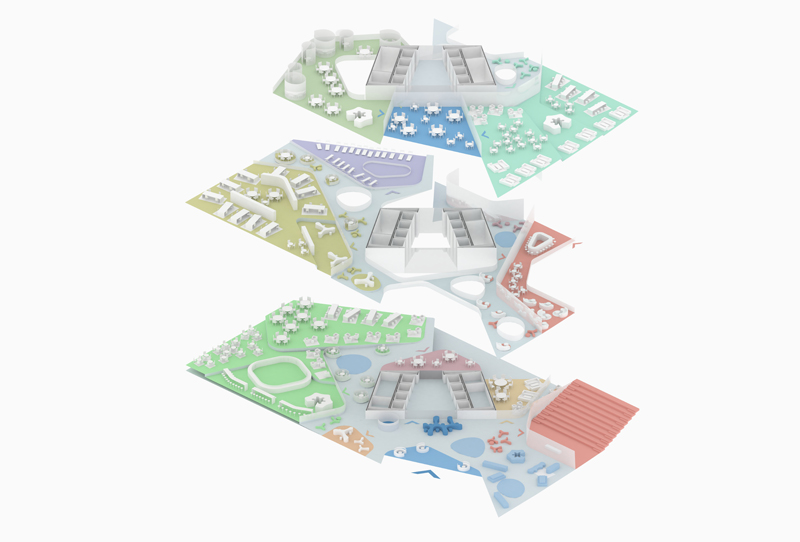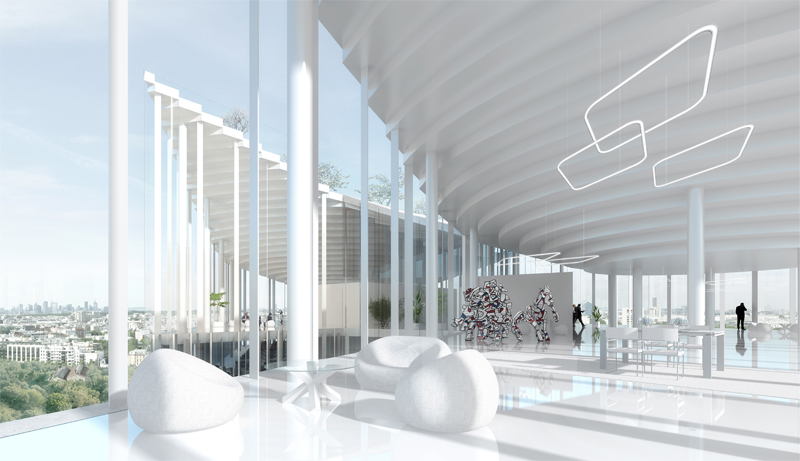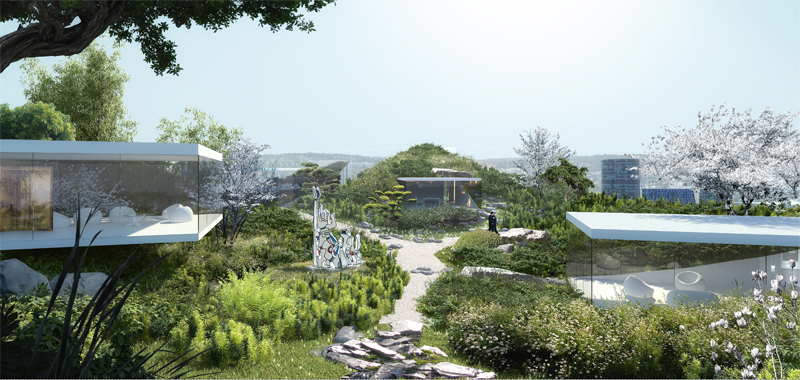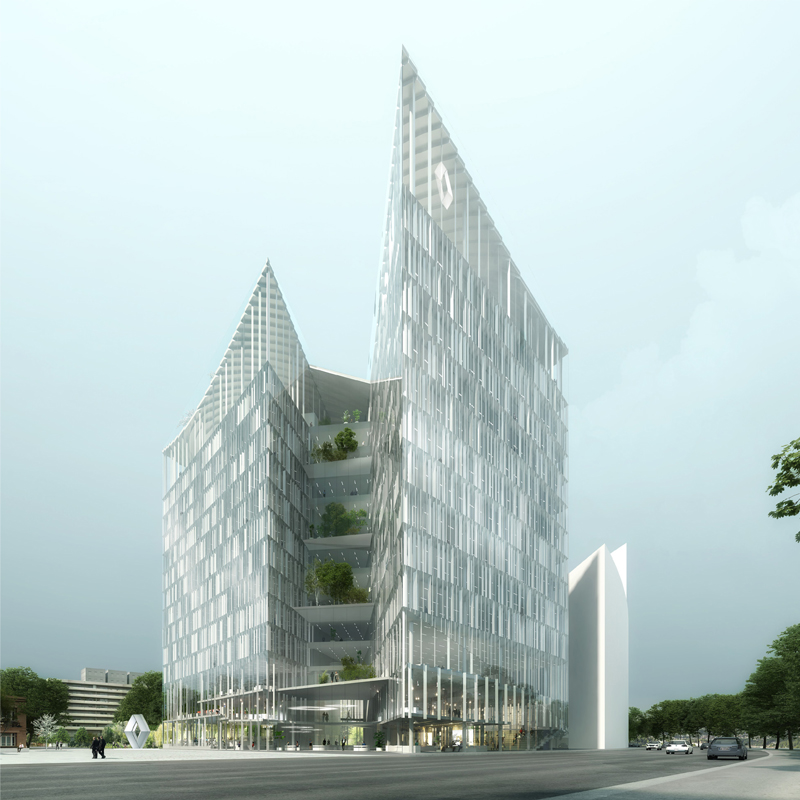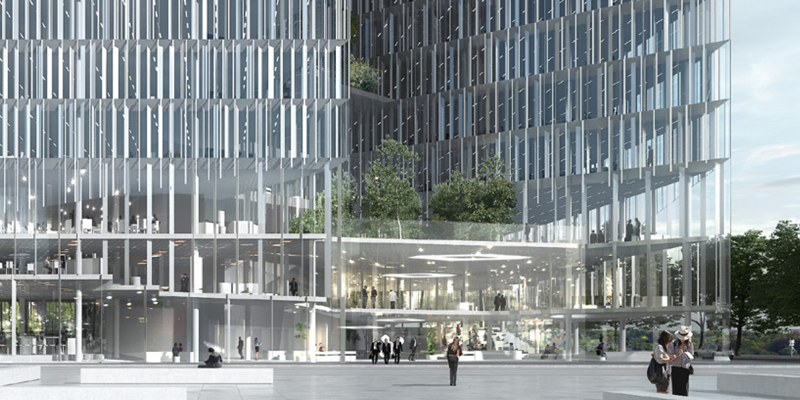Program : aménagement de la ZAC Seguin en un immeuble à vocation tertiaire
Client : Sefri Cime
Architect : ECDM architectes – project director : Jérémy Bernier
Mission : concours 2018
Team : NB
Photographer : NB
Location : Secteur du Trapèze, ZAC Seguin – Boulogne Billancourt (92)
Surface :
Cost : € 150 M VAT
Delivery : NB
Environnemental label : NB
The creation of an emergent element is an opportunity to rethink the relationship between the new neighborhood of Le Trapèze and the Grand Paris area. This punctuation highlights the metropolitan character of the site by creating a landmark which can be viewed from afar. Because of its status, size and the culture, Le Trapèze is a unique area within Paris. The site is emblematic of the changes that have transformed our industrial cities, of paradigm shifts that have enabled the implementation of a highly complex urban strategy, taking into account the needs of a postmodern society. Therefore, the verticality of the building must express an area where the urban landscape frames a careful balance between mineral and vegetable, between planes and voids imbued with the complexity of a dense and attractive area. Our proposals were designed as individual elements in an urban mixed composite, where residential, commercial and green spaces combine to form a whole. In our projects, there is a firm horizontal component which proposes a frame, defining the boundaries of the park, the Seine and its emergences, punctuations designed in resonance with other high points on the bend in the river, such as the Horizons tower or the buildings to come on the Seguin Island.
As the valley of the Seine crosses Paris, it is punctuated by towers. One thinks of La Defense, the Front de Seine, the Eiffel Tower, the neighborhood surrounding Gare de Lyon, as well as many other architectural interventions dispersed along the river’s fluvial geography and landscape favoring emergent typologies. In the site next to the river, it seemed essential that the collusion between emergent elements came together to break away from the general pattern of the neighborhood. Both projects are designed in relation to a specific horizon line, referencing both the context of the district and the grand landscape.
We thought of our projects as entities in resonance with existing architectural points: the Horizons tower, the top of the Pont de Sèvres and the towers to come on the Ile Seguin. These three entities form a triangle, with which our project intersects as an extremity. Therefore, the project is about offering a new center of gravity and a principle of volumetric gradation which establish a link with the buildings erected along the wharf and complicity with the bow of the Ile Seguin. Guided by this, we moved the density of our project to the north-west side of the plot to establish a link with the buildings along the shore, and so as not to generate visual competition with the Ile Seguin. The bow of the Ile Seguin has a geographic potency which leaves no room for what would be a de facto substitute. The shape of the plot, a rounded triangle, does not constitute a bow, any analogy to boats and skippers would be fortuitous, besides, a trapeze has no bow. Therefore our projects are designed to frame views and perspectives by creating a dividing line at the junction of the park and the wharf. Program requirements have led us to develop two projects of different types, structured by two distinct approaches to provide privacy and ensure the safety of persons and property. Refuting any formal preoccupations, we have chosen to develop two projects, two designs structured by two regulatory height constraint possibilities.
Origami
The specific request to construct the tower as an accumulation of reference plans for accessibility and fire safety has led us to consider ways that different aspects of the project can be superimposed to generate a representation of the landscape. Rejecting the idea of creating elements of infrastructure, such as roads and ramps, any element exogenous to the nature of a commercial building, we offer the concept of a building designed with the logic of landscape. Like a modern Babylon, the project aims to build inhabitable rooftops, to create usable space. It is a project of techtonics, origami where the landscape is folded up on itself in successive planes. The podium is seen as topography, an inclined datum, a garden created in layered planes. A perfect extrusion of the parcel, the podium perfectly outlines the block through its rigorous subscription to the alignments and typologies of the surrounding blocks. At the tip of the plot, the volume lifts up to claim a good view of the park. On top of the podium floats a cube, at the base narrowed by the topography of the podium. The volumes are articulated by hyphens of landscape, interfaces between vegetable and mineral. The cube is punctured in the centre by a large terrace intesecting the project’s height of 89 meters. This device provides a counter-point to the cube and emphasizes the lightness of the volume. The tower is topped by a greenhouse, a vast vertical garden which emphasizes the project’s verticality as it fades towards the sky.
The slenderness ratio which characterizes a tower is not appropriate here, the height limit of 89 meters led us to develop other qualities of the height. A tower automatically implies authoritarian values and principles, density, compactness, rationality. Without denying the ability of these qualities to respond to the programmatic requirements of the project, our project reinterprets and sophisticates these principles into architectural oxymorons. It’s about being compact and light, dense, slender, streamlined and complex. Our project was built with the desire to escape formal fatalities related to the height to develop an expanded notion of landscape from which we can see and be seen from afar. Consequently, the facade has to be at times a boundary line, constitutive of urbanity, and a vertical landscape element made of solid and void, dividing the foreground and the depth of field like a veil, moving towards an unpretentious architecture in order to define a lifestyle beyond the limits of the building. The specificity of the brief allows us to propose a very distinct and atypical project, allowing us to re-examine height as a formal element within the scope of the programmatic requirements.
An Open Verticality
Consequently, there results an open vertical typology for an accessible building based on a principle of organization that aims to establish a link with the surrounding environment. The building lifts itself gradually off the ground, still aware of its roots, which is the basis of its innovation. It rises in a gentle slope, an invitation to take a different route.The terraces spiral, solid and void intermingle. As the building climbs, the construction becomes lighter, more transparent, large terraces create porosity between the interior and exterior. Mineral elements disappear almost completely in the top 20 meters of the tower to become a large vertical garden. Without imitating it, our building proposes a strong symbiosis with the Horizons Tower that marks the other end of the Trapeze quarter. Our building is composed of three volumes: a podium, a flute and a vertical garden, a three-step gradation from mineral elements towards lightness and abstraction.
